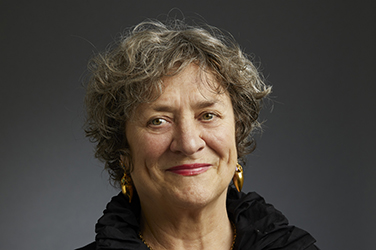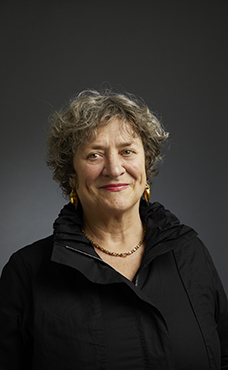- Free Article: No
- Contents Category: Publisher of the Month
- Custom Article Title: An interview with Terri-ann White
- Review Article: Yes
- Article Title: An interview with Terri-ann White
- Online Only: No
- Custom Highlight Text:
Terri-ann White was Director of UWA Publishing (2006–20). In 1999, she established the Institute of Advanced Studies, a cross-disciplinary centre at the University of Western Australia. She has been an independent bookseller and writer. In 2021, she established a new publishing house, Upswell Publishing, based in Perth and building a list of distinctive literary works in fiction, poetry, and narrative non-fiction.
- Article Hero Image (920px wide):

- Article Hero Image Caption: Terri-ann White (Robert Frith)
- Featured Image (400px * 250px):

- Alt Tag (Featured Image): An interview with Terri-ann White
Do you edit the books you commission?
Most Upswell books are acquired rather than commissioned. I am the first Upswell reader and I do a first pass with the manuscript. But I am not an editor and I use one of five serious editors I’ve trusted and admired over a decade or so.
What qualities do you look for in an author?
Enthusiasm and passion, mostly.
In your dealings with authors, what is the greatest pleasure – and challenge?
Watching how they can unlock and enhance their writing project with a bare minimum of prompts from me. I am working with many writers who have never published a book, so it is very intense and full of thrilling discoveries for them.
Do you write yourself? If so, has it informed your work as a publisher?
Yes. Informed in a profound way as I understand what it is to complete a manuscript, and what it feels like to fail.
What kinds of books do you enjoy reading?
Rereading has always been a significant part of my life. I do it to understand how writing is made and how it works for a reader, as well as for the succour it gives me. For about thirty years I had an end-of-year reading ritual: I’d select a few Alice Munro stories and give myself over to them. This means I became intimately and actively connected to her writing through key years in my life cycle.
Which editors/publishers do you most admire?
Jonathan Galassi (Farrar, Straus and Giroux): I met him at the Sydney Writers’ Festival in my first six months as a publisher. He told me that I wouldn’t be a real publisher if I didn’t publish poetry. [Jonathan Galassi was Publisher of the Month in March 2017.]
What advice would you give an aspiring publisher?
Read outside your comfort zone. Read works in translation.
How significant, in a protean age, are book reviews?
Very significant for the author and, to a lesser extent, the publisher. Potentially useful for finding readers.
In a highly competitive market, is individuality one of the casualties?
No. I’m in this for the long haul. Even books that flop in their time end up in libraries and second-hand bookshops, ripe for discovery. The prospect of a living wage for writers, on the other hand, is even less likely these days.
What’s the outlook for new writing of quality?
Pretty good, I expect, for as long as there are writers and publishers and, of course, readers who interrogate this concept of quality by stretching themselves into learning about writing that works the language and spins ideas off into intriguing shapes.
I’d love to see the end of the current crime fiction trend. It does my head in.



Comments powered by CComment